
Unisa’s Catalytic Niche Area (CNA) Research Symposium, held on 14 and 15 August at the Muckleneuk Campus, Tshwane, spotlighted groundbreaking advancements in biotechnological studies. The day 2 panel discussion on CNA 7: Natural Sciences (Biotechnological Studies), titled "Creating Natural Stories for the Benefit of Humankind", was led by Prof Michael Pillay, a Distinguished Research Professor from the College of Agriculture and Environmental Sciences.
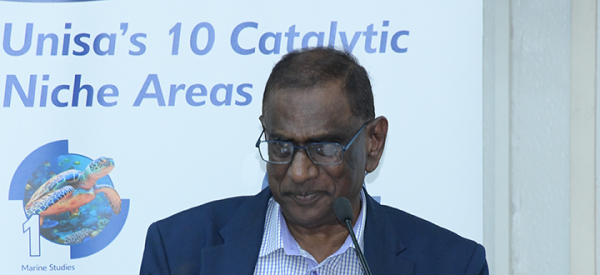
Prof Michael Pillay, a Distinguished Research Professor at Unisa, coordinates the panel discussion of Natural Sciences (Biotechnological Studies) for CNA 7
The discussion underscored the transformative potential of biotechnology, highlighting the need for multidisciplinary collaboration. Pillay opened the session by emphasising the interconnections between various scientific fields and their collective role in solving complex global issues. The discussion also featured insights from other panel experts.
Dr Cornelius Ssemakalu, of the Vaal University of Technology’s Department of Biotechnology, spoke passionately about empowering health sovereignty in Africa, focusing on the critical role of local vaccine production and innovative technologies. He shared how his journey as a scientist began with a desire to understand immunity from an applied perspective, which fuelled his passion for developing solutions in this area.
Ssemakalu recounted witnessing how diseases could silently rob communities of their potential, motivating him to channel frustrations into creating life-saving technologies. One such innovation is photonic inactivation technology (PIT), which uses light to inactivate harmful organisms. His goal is to extend this innovation to scientists at universities and research councils, co-creating solutions for various diseases that could benefit from such a technology.
Other panel members from the College of Science, Engineering and Technology highlighted their work in developing technologies that ensure safe and uncontaminated living environments. These contributions further demonstrated the wide-ranging applications of biotechnology in creating sustainable solutions for societal challenges.
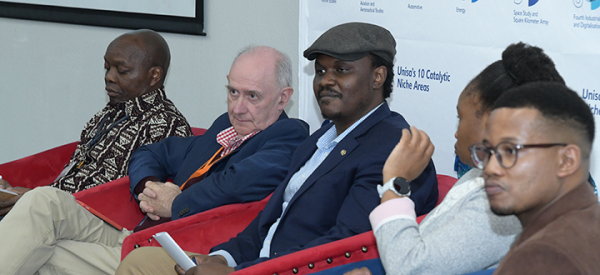
The CNA 7 panel, led by Prof Michael Pillay, discusses innovative biotechnological solutions
One of the standout contributions from the panel came from Sibusiso Malindisa, who highlighted their work on developing drugs specifically designed to target cancer. He also discussed the innovative approach of repurposing existing drugs for new therapeutic uses. This strategy is particularly promising as it not only optimises current treatments but also accelerates the discovery of effective solutions for conditions like cancer. Malindisa’s views underscored the importance of continuous innovation in biotechnology, especially in areas like drug design and repurposing, where the potential to save lives is immense.
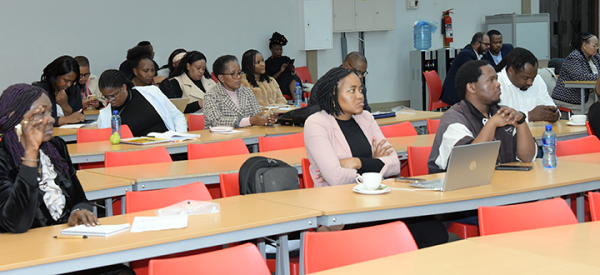
Attendees engage with the discussion during the panel session on Natural Sciences (Biotechnological Studies).
The interactive nature of the panel discussion allowed for a rich exchange of ideas, with attendees engaging in a lively question-and-answer session. The dialogue fostered a deeper understanding of the pivotal role that biotechnology plays in crafting solutions that can benefit humanity, making the session significant. The CNA 7 discussion exemplified how strategic scientific research can create tangible benefits for humankind, especially when it comes to harnessing biotechnology for health and sustainability. Unisa continues to lead the charge in pushing the boundaries of knowledge, ensuring that the natural sciences remain at the forefront of solving global challenges.
Unisa’s Catalytic Niche Area Research Symposium showcased the university’s commitment to pushing the boundaries of scientific research.
* By Seyabonga Thipe, Intern Journalist, Department of Institutional Advancement
** Photography by Doctor Mlambo, College of Graduate Studies
Publish date: 2024-09-02 00:00:00.0
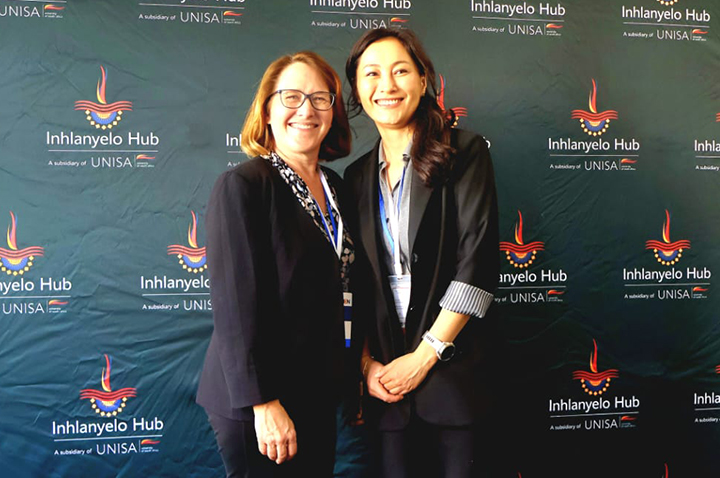 Unisa roundtable focuses on empowering SA women to lead in innovation
Unisa roundtable focuses on empowering SA women to lead in innovation
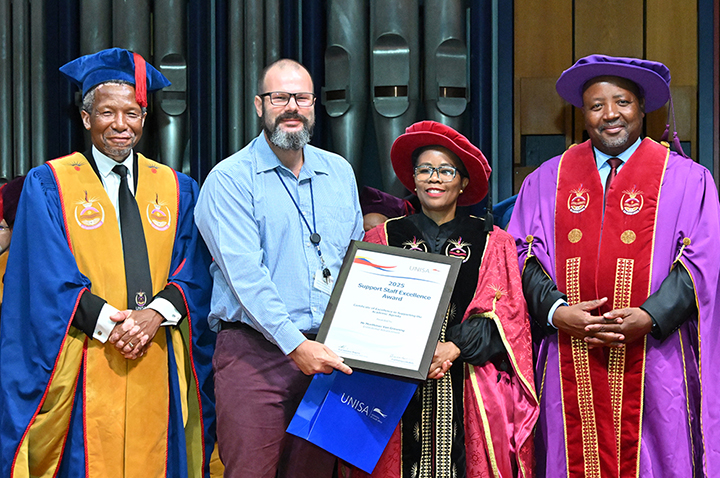 Unisan recognised for web excellence
Unisan recognised for web excellence
 Office of the Dean of Students participates in leadership camp
Office of the Dean of Students participates in leadership camp
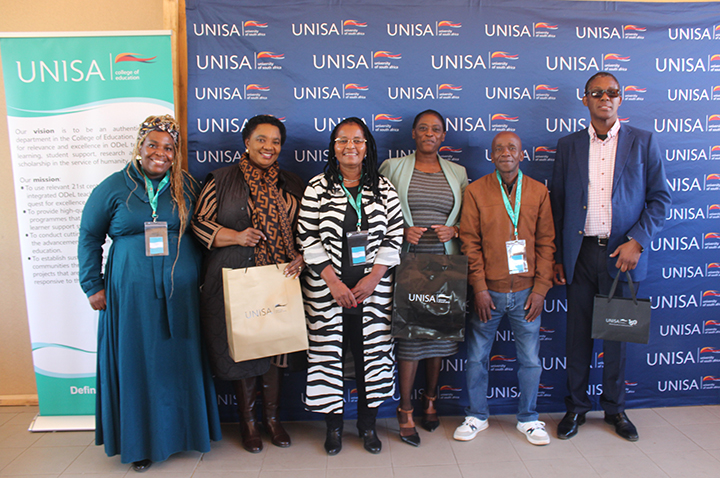 Unisa project fosters digital and pedagogical innovation in Limpopo schools
Unisa project fosters digital and pedagogical innovation in Limpopo schools
 Unisa student wins prestigious national leadership award
Unisa student wins prestigious national leadership award